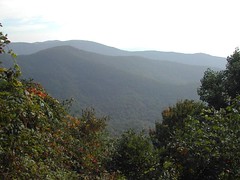News research and new media
The 'Wikipedia for research' discussion has been going on for a long time now, with serious arguments among news librarians on their listserv; several have promoted use of Wikipedia as a great starting point for finding links and facts to check out, but other researchers and journalists are appalled that anyone would use such a 'non-verified' source.
Two good discussions appeared this week, including an article in American Journalism Review: Wikipedia in the Newsroom. It quotes Wikipedia founder Jimmy Wales as saying what several researchers have posted in the Newslib-L messages:
"I think that people are sort of slowly learning how to use Wikipedia, and learning its strengths and its weaknesses," he says. "Of course, any reasonable person has to be up front that there are weaknesses... On the other hand, there are lots of sources that have weaknesses." Wales thinks the encyclopedia's best journalistic use is for background research rather than as a source to be quoted.Lots of good discussion here, from reporters and copyeditors, pro and (mostly) con.
At Mediashift, an article by Jennifer Woodard Maderazo, How Google, Wikipedia Have Changed Our Lives — For Better and Worse. Reporting about a UK professor who has banned use of Google or Wikipedia by her class, Maderazo says the professor has a point:
I spend a ridiculous amount of time on the Internet and lately have become concerned that it’s actually changed the way I think — for the worse. While it’s great that I can get instant answers to any question under the sun and read books online for free, I am also feeling unchallenged and reliant on this type of convenience.But, she says,
I haven’t been to the library in about 10 years. I use the Internet for absolutely everything related to research, and in fact, I’d feel totally crippled without it. The speed at which I collect information is so lightning fast that it’s difficult to digest it all.
One thing she would find impossible to give up, she says, is the ability to quickly answer 'burning questions', like what song is it that has that riff she hears over and over in her mind? (Gerry Rafferty's Baker Street, answer found quickly, with reams of information, in Google.)
Fascinating discussions.
On a similar new media topic, also in American Journalism Review, In Your Facebook, on why journalists are signing up in droves. I'm still not drawn to Facebook, but was invited to LinkedIn a few months ago and have been enjoying the connections I'm remaking -- and making.
(Updated:) For some even deeper thought about journalism, the Web, Wikipedia and research, Doc Searls has some ruminations in Linux Journal: Journalism in a world of open code and open self-education.
Labels: new media, news research






